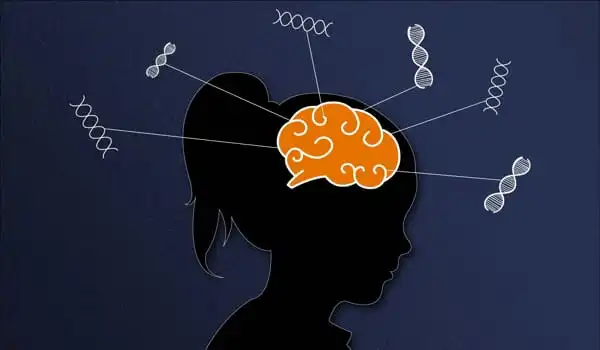Autism Spectrum Disorder (ASD) is one of the most common neurodevelopmental disorders, affecting approximately one out of every 59 children. ASD is very genetically diverse, with both inheritable and de novo gene variants being possible causes. Hundreds of genes have been found in the last decade that contribute to the severe communication, social cognitive, and behavior problems that patients frequently experience.
According to Lancaster University researchers, drugs that boost insulin signaling may be useful for treating autism. The researchers found how a genetic mutation affects insulin signaling and glucose metabolism in the brain.
Small regions of DNA in the human genome have been found to be duplicated or deleted in some persons, a process known as Copy Number Variation. Some of these genetic alterations create neurodevelopmental issues and significantly raise a person’s risk of acquiring diseases including autism, schizophrenia, and Tourette’s syndrome.
People with a DNA loss at chromosome 2p16.3, which leads in the deletion of the Neurexin1 gene, for example, frequently have neurodevelopmental delays and cognitive impairments. People with the 2p16.3 deletion are also 14 to 20 times more likely than people without the loss to acquire neurodevelopmental disorders such as autism, schizophrenia, and Tourette’s syndrome.
In order to create new treatments, there is an urgent need to better understand the underlying neurobiology of neurodevelopmental diseases. Drugs to aid patients with cognitive and social impairments are especially essential, as these symptoms have a significant impact on their quality of life.
Dr. Neil Dawson
This form of DNA deletion affects an estimated two to three million people globally, yet there are presently no viable medication treatments for the resultant cognitive difficulties.
Scientists have shown for the first time in research funded by The Royal Society that deleting the Neurexin1 gene decreases glucose metabolism in the prefrontal cortex, a major brain region involved in higher-level cognitive tasks such as cognitive flexibility and paying attention. The deletion of Neurexin1 was also found to impair insulin receptor activation in the prefrontal cortex, which presumably explains the lower glucose metabolism observed in this region.
The findings, which were published in the journal Autism Research, provide important new insight into how this leads to cognitive deficiencies, behavioral disturbances, and a much increased chance of developing a variety of neurodevelopmental problems.
The discovery that Neurexin1 deletion affects insulin signaling and glucose metabolism in the prefrontal cortex suggests that medicines that boost insulin signaling could be an effective treatment strategy.

Lancaster University’s lead researcher, Dr. Neil Dawson, stated: “In order to create new treatments, there is an urgent need to better understand the underlying neurobiology of neurodevelopmental diseases. Drugs to aid patients with cognitive and social impairments are especially essential, as these symptoms have a significant impact on their quality of life.”
Furthermore, the researchers demonstrated that Neurexin1 deletion produces deficiencies in cognitive functions that rely on the prefrontal cortex, such as the ability to be flexible. The study also discovered that the impaired glucose metabolism in the prefrontal cortex caused by Neurexin1 deletion was associated with being hyperactive when confronted with novel stimuli.
The dorsal raphé, which displayed increased activity, was identified as a second brain region altered by Neurexin1 loss. This area is the genesis of serotonin neurons that propagate throughout the brain, implying that Neurexin1 deletion also disrupts the serotonin neurotransmitter system.
There is plenty of evidence that autism runs in families. Changes in genes during pregnancy affect the child’s susceptibility to autism. Autism, addiction issues, depression, alcoholism, and even bipolar disease are all examples of DNA abnormalities that can be handed on from a parent (even if the parent does not have autism).
According to Dr. Neil Dawson: “Furthermore, the discovery that the serotonin system may be malfunctioning necessitates additional investigation and suggests that medications targeting this neurotransmitter system may be beneficial. As part of ongoing research to create better treatments for persons with 2p16.3 deletion, autism, schizophrenia, and Tourette’s syndrome, we may now evaluate the ability of medications that target these processes to restore these translational abnormalities seen.”















